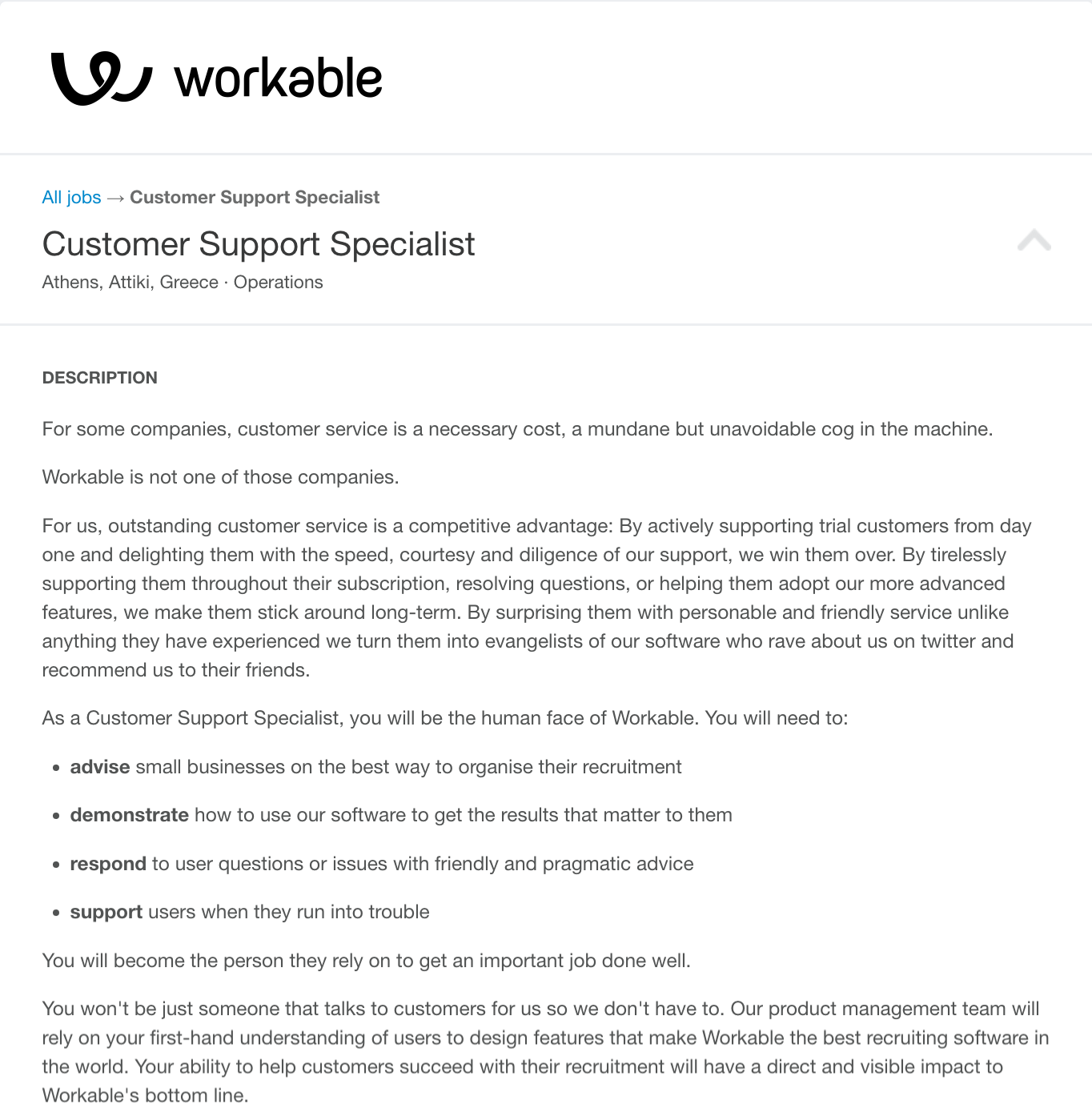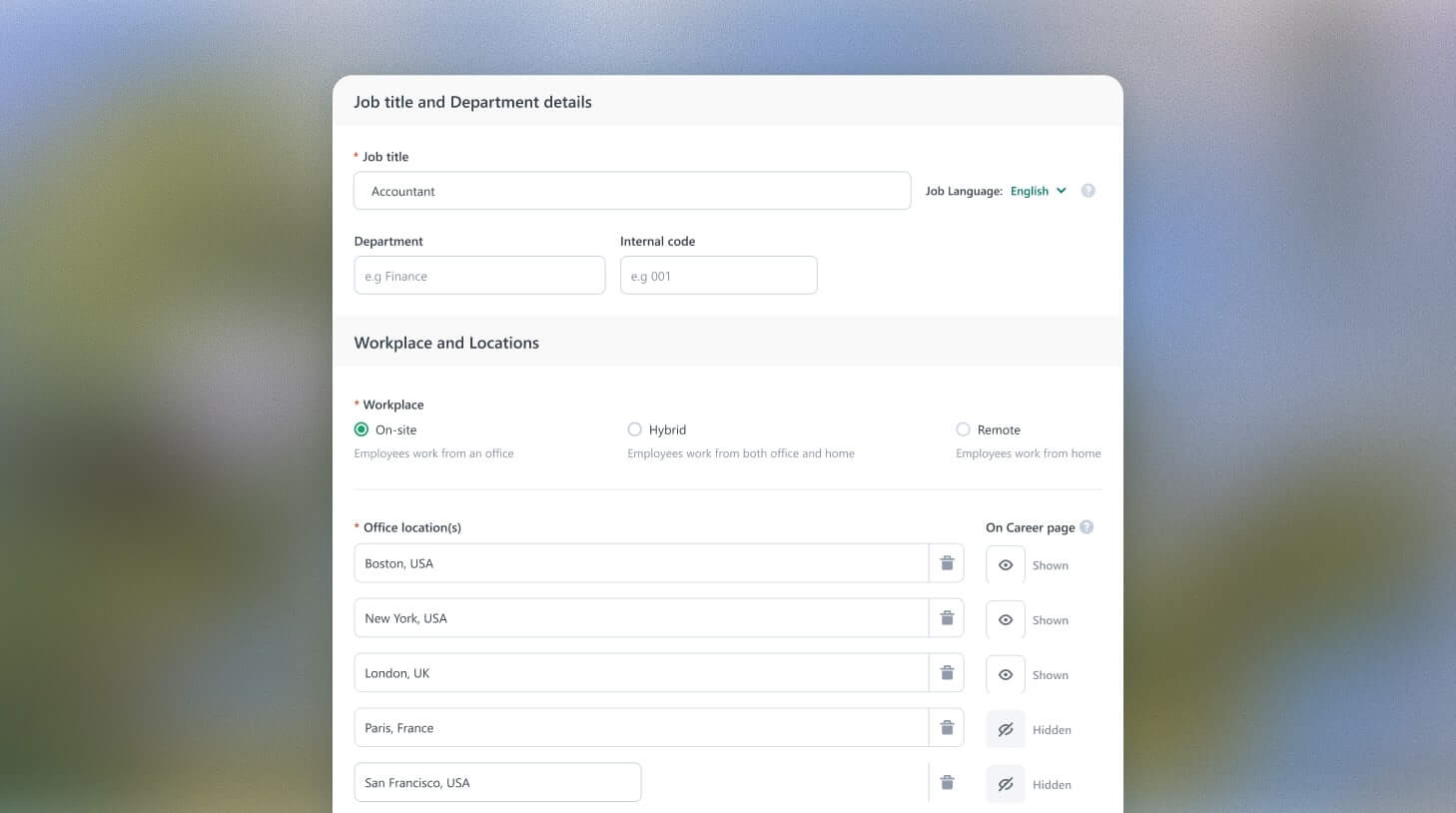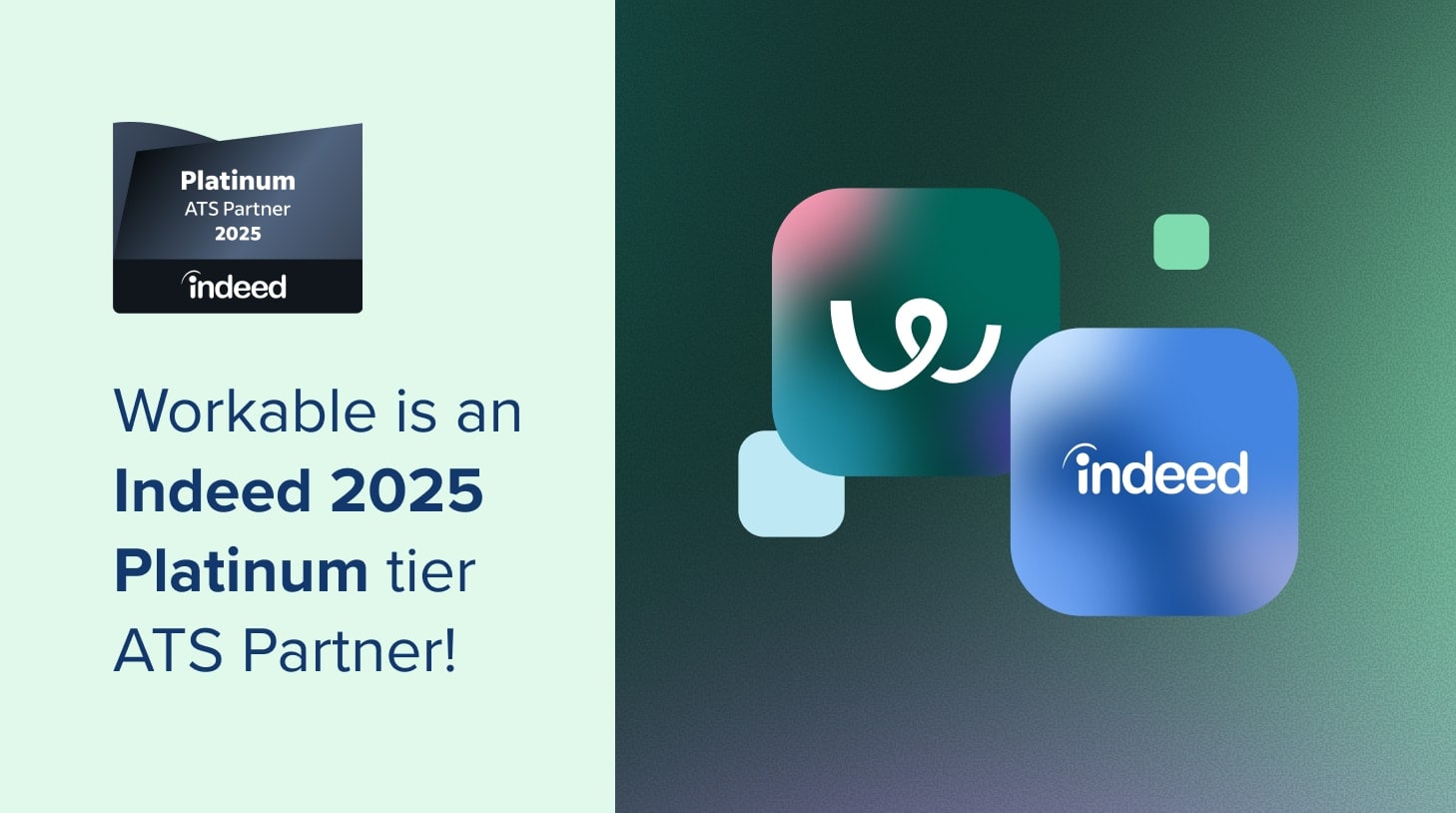How we’ve scaled our customer support team

Workable’s support team used to be one person in Athens. Now we’re in Boston, Athens and Australia and we’ve added 6 new team members in the last 15 months. In the midst of scaling our team across multiple time zones, we’ve slashed our median response time to customer support requests to just 18 minutes. As a fast-growing hiring software startup, we’ve learned a lot from hiring our own support team.
Here are the steps we took to grow our customer and technical support team:
1. We decided customer support was important
This might sound glaringly obvious, but committing to customer support was important for us. Support is our company’s fulcrum — our work touches every team, from Engineering to Social Media. We’re the human face of Workable and we’re hiring consultants for our customers. We embedded a customer-first approach into our product design and company culture from the start. Without this cultural foundation, we couldn’t have built such a great team so fast.
2. We searched for a specific kind of candidate
“Customer support” was a hard job to hire for. We needed to get our hiring timing right, both for when we hired new people, and in which time zones. As a distributed team, we basically had to hire two people for each role. Customer support job titles sound pretty generic, but we were looking for people with a really particular set of skills. We discovered that the best candidates are:
- Tech savvy
- Methodical
- Detail-oriented
- Good problem solvers
- Good multitaskers
- Good listeners
But, above all, customer support hires have to enjoy helping others.
We don’t follow hard-and-fast rules or stick to strict support policies. So we look for people who are adaptable, flexible, patient and who want to help, no matter the context. Because often, customers contact us with issues that aren’t product-related. For example, once we had a customer call us because he had zoomed in his screen while using Workable, and couldn’t figure how to zoom it back out. Even though his problem had nothing to do with our product, we look for people who are more than happy to help him. If candidates are uncomfortable going off-script or making decisions on their own, they probably won’t fit our support culture.
3. We wrote our job descriptions carefully
Writing good job descriptions was challenging, because we wanted to find such niche candidates. We took the task of writing an appealing job description seriously. Our end result resonated with candidates who actually cared about helping people . Here’s the “Customer Support Specialist” description we used to capture our support approach and attract good quality applications:

4. We designed a structured hiring process to find the right candidates
As a hiring software company, we realize how powerful structured interviews and applications can be. So, we added a structured assignment process to help assess candidates’ skills and work styles. We used a writing assignment to get a feel for candidates’ writing skills. We wanted to see whether they’d hit a friendly, conversational tone, like we do on our website. Then we asked candidates how they’d handle some support scenarios through multiple choice questions. We weren’t necessarily looking for the ‘right’ answers to their assignment questions. We were more interested in their approach to the questions and the reasoning they gave for their choices. We also looked for people who enjoy working in teams, because we have shared queues and frequent group discussions. So it would be painful if a new hire didn’t like to work that way. We have processes that we develop all the time, and the team appreciates them for adding structure to their work. But, our company culture allows people to make decisions and mistakes. So if candidates like a mix of structure and freedom, they’ll like our style.
5. We take a customer-first onboarding approach
It’s difficult to onboard when our product is evolving so fast. But we figure that the best way we can support customers is to experience our product from their eyes. So, when a new customer support hire joins, we ask them to act like a customer. They sign up for Workable, start using our hiring software and write a few fake job posts. That way, our new hires know how our product works and how customers experience our software. Then we move onto more formal training, which includes an in-depth demo, like our Sales demos for prospective customers. From there, our team helps new hires get to know our product by sharing our internal wiki pages, documentation and other resources. We even set up fake notifications so our customer support team can experience notifications from our customers’ point of view. Using this kind of customer-first approach, we generally expect our new hires to be up and running by the end of their first month. And to address our distributed team and timezone challenges, we check in with each often and travel to meet our new team members in person, whenever possible.
6. We use customer support feedback to improve our product
We’re conscious of the fact that some customer support jobs can become repetitive and lead to burnout. We try to reduce repetitive tasks as much as possible by integrating our common support queries into new feature suggestions. And we always invite our support team to contribute to product management discussions that shape our product roadmap. We take this iterative approach because we believe a simple support truth:
What’s good for our customer support team is good for our customers.
7. We focus on ongoing professional development and growth
We encourage each team member to focus on aspects of their role they enjoy the most. And we schedule weekly 1:1 meetings to help identify and address issues before it’s too late. Team members often take on projects that would be handled by Customer Service Managers in other companies. For example, they write up new processes that the team will follow, or they evaluate a new tool that the team might start using. We also encourage team members to go to conferences and to pursue projects they’re interested in. (Even if they fall outside typical support topics). For example, one of our customer support trainers recently moved to our Product Management team, after taking an interest in product development. We encourage that kind of growth – and realize that sometimes, it makes sense to lose great people to other teams within Workable.
We haven’t experienced a churn problem because we hire strong candidates, pay well and give people independence to go off script. And we’re always looking for new ways to improve by considering everyone’s feedback. We’re convinced that, if our people are happy and invested in their work, our customers will be happy too.




